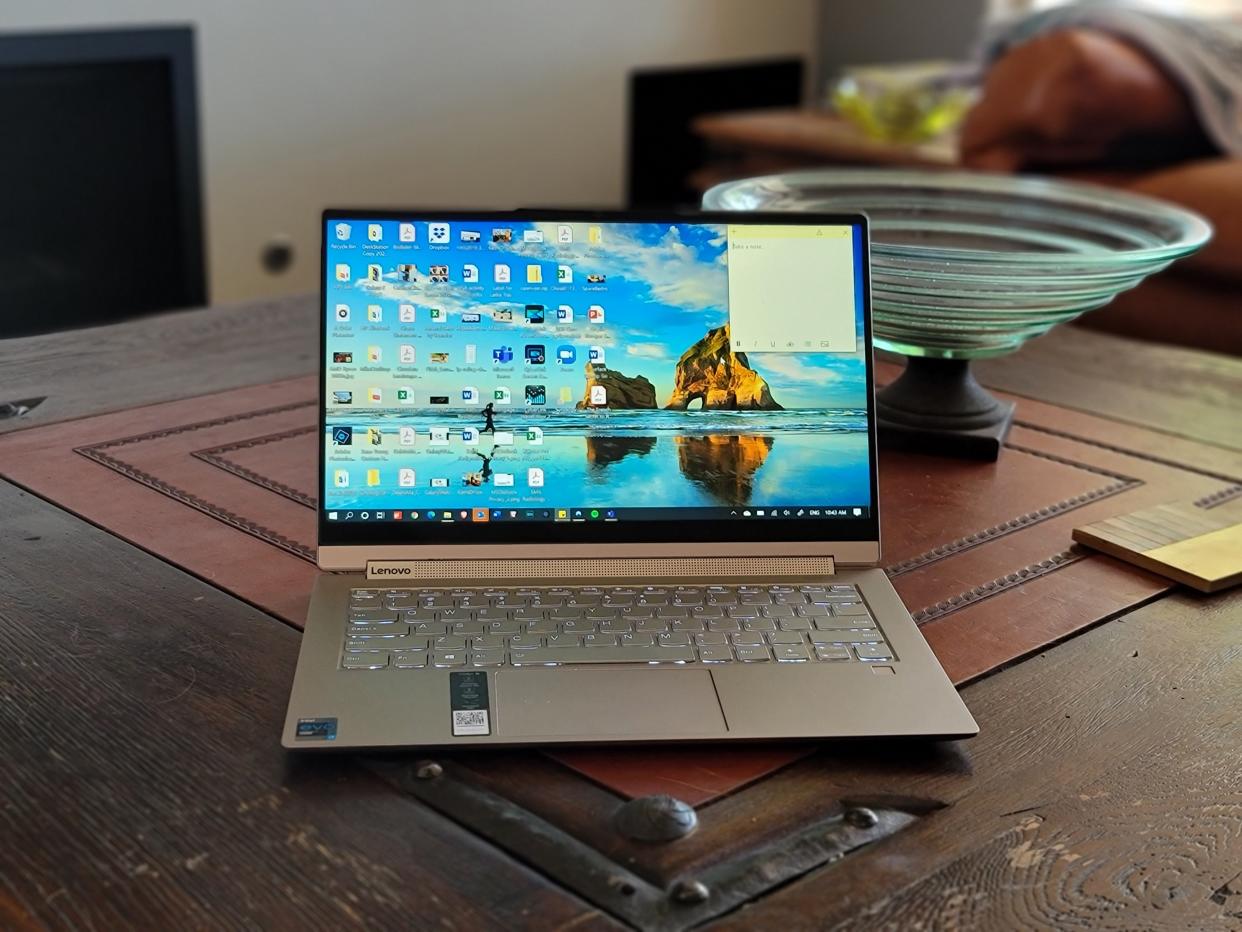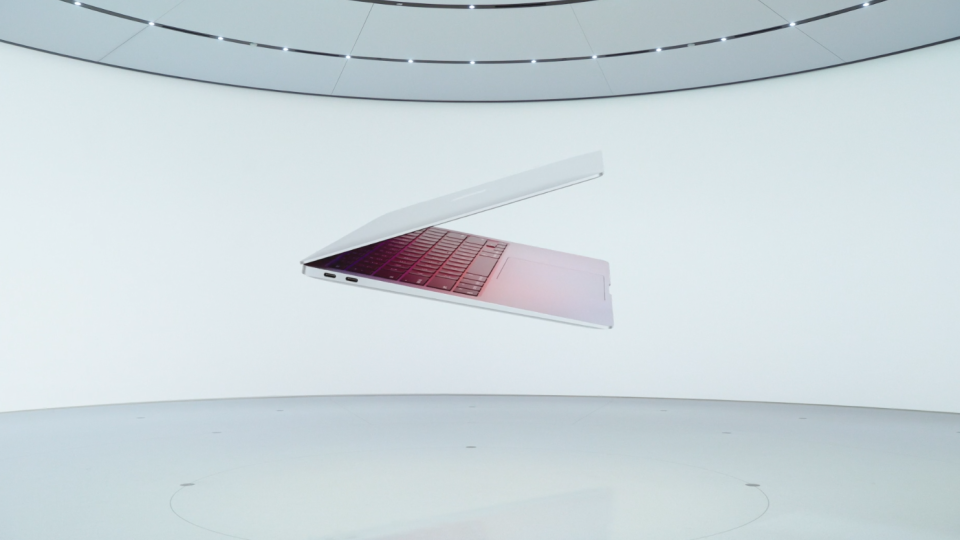Apple and Intel divorce: What's the best part? Great laptops for the holidays

As with any bitter divorce, Apple and Intel are showing up to the big holiday party with vengeance in mind. To the benefit, mind you, of anyone in the market for a new laptop this holiday season.
In unveiling the first MacBooks with its own M1 processors – and the first without Intel chips in more than 14 years – Apple went to great lengths to make the case that it doesn’t need its old partner anymore. “With M1, MacBook Air is faster than 98% of PC laptops sold in the last year,” Laura Metz, Apple’s Mac product line manager, exclaimed during Apple’s broadcast Tuesday.
Apple even took a jab at its estranged partner with a remix of the wildly successful “I’m a Mac” campaign, featuring a cameo from John Hodgman, who played the PC in the last-decade ads. The series, unveiled during Apple’s transition to Intel processors, took shots at Microsoft Windows. This time, though, Apple targeted what it framed as shortcomings in Intel processors’ performance and battery life.
Need photo editing help?: Why this free app is the best option for beginner or professional photographers
Xbox and PlayStation: How Sony and Microsoft changed the way we play video games

How do you like me now?
But Intel has its own how-do-you-like-me-now card to play, dramatically raising the bar with its new 11th-generation Core processors, along with a portability brand called Evo. Evo-branded laptops are just now coming to market. In fact, the one I’ve been evaluating – Lenovo’s upcoming Yoga 9i – will be available this week, just as the first MacBooks ship to customers.
With just five days of testing under my belt so far, the Yoga 9i is flat-out the zippiest, most responsive laptop or tablet I’ve ever had the pleasure to evaluate. Most times, the screen is already lit by the time I’ve pried it open. The fingerprint unlocks the system super quickly. And when I’m working, you can just feel the hup-two response.
Moreover, the Yoga 9i is noticeably more responsive than my year-old HP Dragonfly, which was a pretty sleek system in its own right. Still is, in fact.
Real-world battery life
Battery life is one area where Apple and Intel diverge – at least on messaging, if not intent. For the new MacBook Air, Apple claims 18 hours of nonstop video playback on a single charge. Which, who does that?
Exactly, Intel no doubt would say. With Evo – and the Project Athena initiative that spawned the new portability brand – Intel is trying to recalibrate the PC industry to use more realistic battery life claims that approximate what buyers can expect to see when they use the systems. An admirable goal. With an uphill battle.
Indeed, claims of 15 to 20 hours of video playback between charges are not unique to Apple. Most of Intel’s current partners – including HP and Lenovo – are guilty of the same transgression. One exception, in fact, has been Microsoft. With the Surface line, the software juggernaut adheres to lower, real-world benchmarks.
One of the requirements for the Evo logo is at least nine hours of battery life under normal use. When I tested a Project Athena system at the start of the year, I got a little less than eight hours, on average. But I also added more apps, frequented more websites and tackled different tasks than Intel had optimized for. With Evo, Intel has tuned for more of everything. And thus far, my time between charges seems to be sticking pretty close to that nine-hour goal.
The face-to-face comparisons will come soon enough. But if the Lenovo Yoga 9i is indicative, Evo-branded laptops offer portability and power that’s a whole lot better than what Apple had to compare with its new MacBook line.
One thing’s for sure: A big benefactor of this miss-me-yet feud between two laptop powerhouses is anyone shopping for a new system for the holidays.
USA TODAY columnist Mike Feibus is president and principal analyst of FeibusTech, a Scottsdale, Arizona, market research and consulting firm. Reach him at mikef@feibustech.com. Follow him on Twitter @MikeFeibus.
This article originally appeared on USA TODAY: Apple MacBooks use own chip, so Intel delivers own laptop computers

